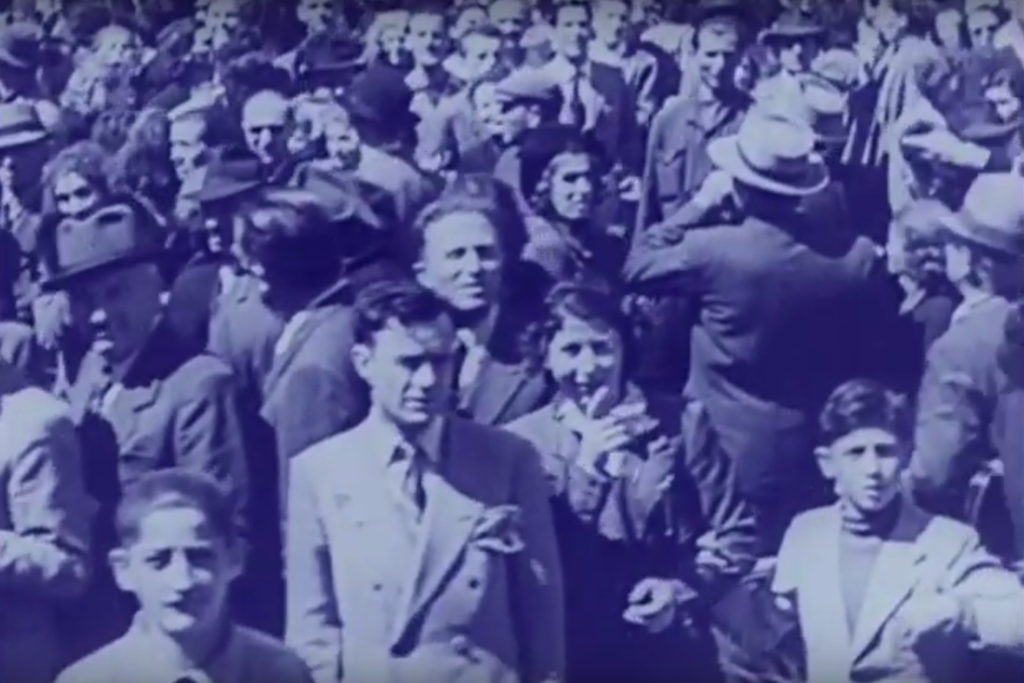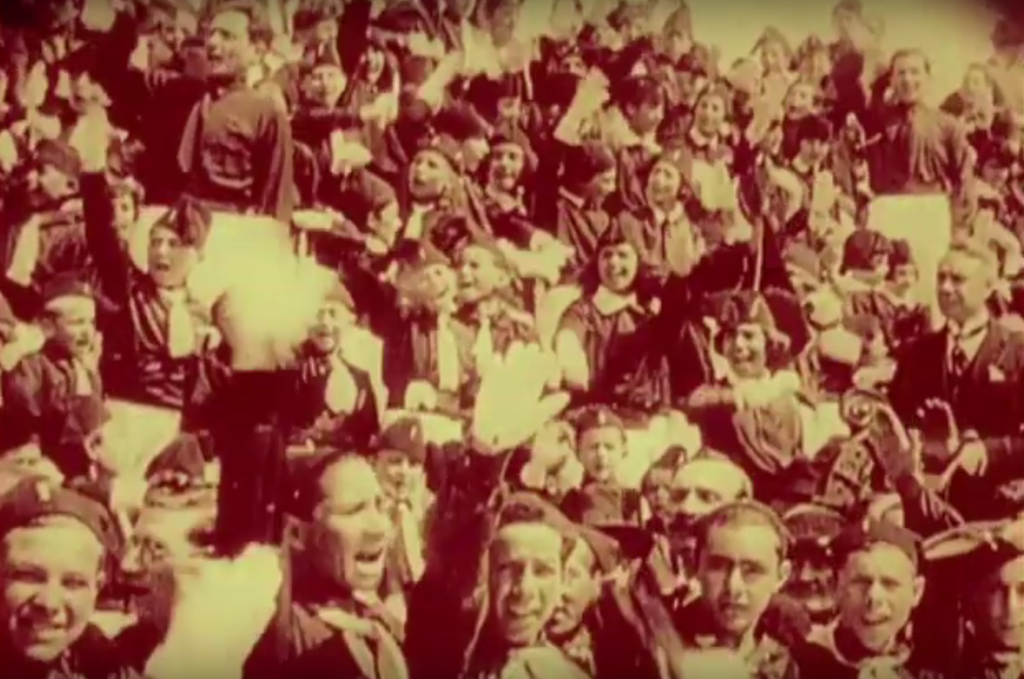Dear Yervant Gianikian,
I hope this finds you well and you don’t mind me writing out of the blue. I am an Associate Professor in the Department of Arts Administration, Education and Policy at Ohio State University and I write this blog, Minus Plato as part of my research into the 2017 exhibition documenta 14, held between Athens, Greece and Kassel, Germany, which you participated in, along with your lifelong collaborator and partner Angela Ricci Lucchi.
Before I go any further, I want to offer you my heartfelt condolences on Angela’s passing at the end of last year. I cannot imagine how you are coping with this loss, as so much of your life and work has been intertwined with hers. I know that you have been touring and introducing your 2018 film I Diari di Angela – Noi Due Cineasti (Angela’s Diaries: Two Filmmakers) and so must be used to responding to audiences who are trying to make sense of this painful artistic transition. At the same time, I am sure that in discussing work that you and Angela completed together, it must feel like you are being asked to channel the dead, and so I understand if I never hear back from you about any of the questions I have about your participation in documenta 14.
Although it cannot compare to your own fresh grief, Minus Plato underwent its own process of mourning as a response to the November 2016 election of a white supremacist President, which resulted in me posting every day, visiting documenta 14 and leaving the academic field of Classics. (I document this process in my chapter “Mourning Diary” in my forthcoming book No Philosopher King: An Everyday Guide to Art and Life under Trump.)
But I am not writing to you about that (although choosing the form of the daily diary does bring me back to that time). Instead, this series of posts is part of the book I am currently writing, provisionally called The Great Unlearning: Artistic Precedence and Curricular Decoloniality at and after documenta 14. (The working title shifts regularly, so maybe it will have changed before I finish writing to you!). My current work on this project comprises visits to global biennial-style exhibitions (e.g. FRONT in Cleveland, Carnegie International in Pittsburgh and the Sharjah Biennial 14, as well as the upcoming Havana Biennial, Venice Biennale and Toronto Biennial) to see if any of the core themes of documenta 14 (e.g. decolonial critique, Indigenous knowledge, feminism, post queer politics and alternative Modernisms) are present as well as any overlap with specific artists (do you have plans to show work in any such context in the near future?)
But today I am writing this to you as an extension of another form of research that I am carrying out for this project. This coming Saturday I am scheduled to present a paper at a conference here at OSU called Italian Cinema(s) Abroad. I knew that I wanted to speak about your work at documenta 14, so I submitted a traditional academic abstract, which was accepted, under the title: Italian Fascism’s Empire Cinema on Greek Public Television: Yervant Gianikian and Angela Ricci Lucchi’s Pays Barbare at documenta 14. I don’t want to bore you with the contents of this abstract, especially as I have no intention of delivering the paper on Saturday. Instead I will read these dairy entries and show their accompanying screengrabs from your 2013 film Pays Barbere, turning the conference audience into witnesses to our (admittedly one-sided!) correspondence. As a Classicist, I became increasingly frustrated by the way academics write on an author or artist, a poem or work of philosophy, and breaking free of that dead discipline to work with living artists has been transformative for me. This is why I am writing to and for you, and not for the audience I will be reading this to.
At the same time, your and Angela’s work, and its ‘analytic camera’, has taught me that we cannot forget our audiences. The opening two sequences of found footage in Pays Barbere, ostensibly showing the dead body of Mussolini in 1945 and then the parading fascist leader in Libya in 1926, also pans across the assembled crowds at each event.

Just as the camera (importantly not your camera) is seen and addressed, by either a woman pointing to it or a young cadet saluting it as if Il Duce, I am reminded that your audiences cannot forget you either, in your artistic re-presentations of history and politics.

It is out of this dynamic between artist and audience that my main question, which will weave through all of this week of screengrabs and posts, arises. How does a more nuanced understanding of audience for your contributions to documenta 14, especially the screening of Pays Barbere on Greek public television for KEIMENA, counter the narrative (represented in the media) that the exhibition was a neocolonial project of disaster tourism? In short, I want to ask how do your films and installations, in their particular way of presenting an artistic intervention into historical Italian fascism and colonialism in the 1920s and 1930s to a contemporary audience, inform debates about white supremacy in current right-wing politics and their basis in the continuity of the colonial matrix of power? Big, heady questions, I know!
I will get started tomorrow, but now I have to go. I am attending a conversation at the Wexner Center for the Arts between filmmaker John Waters and writer Lynne Tillman. Do you know Tillman’s Madame Realism stories? I just read one called “Madame Realism in Freud’s Dreamland” and it reminded me of “The French” section of Osip Mandelstam’s Journey to Armenia (which I read on your recommendation). While the resemblance was based on the way writers transport you to exhibitions and museums with their words, it was Mandelstam’s specific description of what he calls the ‘second stage’ in the process of looking and its relation to realism that made me see the connection:
the second stage of restoring the picture, the washing of it, removing its old peel, its outer and most recent barbaric layer, the stage that links it, as it does every work of art, to a sunny, solid reality.
More tomorrow.
Best wishes,
Richard Fletcher